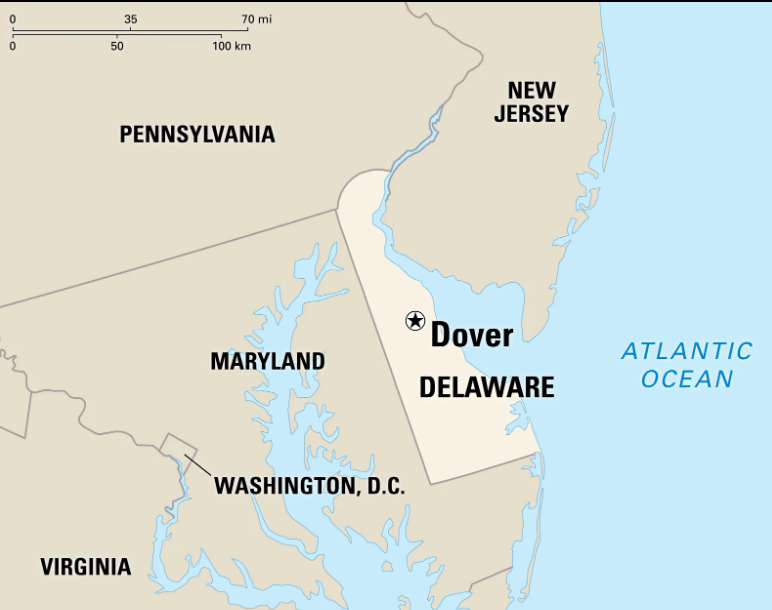Understanding Delaware septic systems permits is crucial for homeowners and businesses looking to install, maintain, or manage their septic systems. Delaware has specific guidelines and regulations to ensure that septic systems are installed and maintained in a way that protects public health and the environment. In this article, we’ll cover everything you need to know about installation permits, wastewater disposal, compliance guidelines, costs, and local resources. Let’s dive in step by step.
- State-Specific Regulations Information
- Compliance Information
- Cost Information
- Local Resources & Contact Information
- Supportive Resources
- FAQs About Delaware Septic Systems Permits
State-Specific Regulations Information
Installation Permits
Before you can install a septic system in Delaware, you’ll need the appropriate permits. Here’s what you should know:
- Are Permit Requirements Necessary?
Yes, Delaware requires homeowners and contractors to obtain an installation permit before starting any septic system installation. This ensures that the system meets Delaware health department guidelines and septic tank regulations. - Permit Costs
The cost of a septic permit in Delaware can vary based on the project’s scale and location. On average, permit fees range from $200 to $500. However, larger or more complex installations may incur higher costs. Be sure to check with your local health department for precise figures. - Permit Application Timeline
Permit applications typically take 2 to 4 weeks for processing. It’s advisable to plan ahead, as delays can occur if additional documentation or site assessments are required.
Septic Tank Size and Placement Guidelines
When installing a septic system in Delaware, it’s essential to follow the guidelines for tank sizing and drain field placement.
- Tank Size Recommendations
Delaware’s regulations specify septic tank sizes depending on the number of bedrooms and occupants in a home. For instance, a typical household might require a 1,000-gallon tank, while larger families may need 1,500-gallon tanks. - Drain Field Placement Requirements
Proper placement of the drain field ensures that wastewater is adequately treated. Here are key placement considerations:- Maintain a minimum distance of 50 feet from wells
- Distance requirements from property lines and structures
- Adequate space to allow for proper absorption and soil filtration
Wastewater Disposal Regulations
Delaware’s wastewater management and disposal guidelines follow the Delaware sewage disposal rules to protect groundwater quality.
- Compliance with Delaware Wastewater Management Laws
- Wastewater must be properly treated to prevent contamination of nearby water sources.
- Disposal systems must adhere to state environmental protection guidelines.
- All systems need to comply with the requirements set by the Delaware Environmental Regulations to maintain soil and water integrity.
Inspection Requirements
Regular inspections are a crucial part of maintaining a compliant septic system in Delaware.
- When Are Inspections Necessary?
- New installations require an initial inspection before system activation.
- Homeowners should also schedule an inspection every 3 to 5 years to ensure proper function and adherence to state guidelines.
- Who Conducts the Inspections?
These inspections are typically carried out by state-certified septic system inspectors. They assess the tank condition, drain field placement, and overall system functionality.
Compliance Information
Potential Fines and Penalties
Failure to comply with Delaware septic tank regulations and septic installation DE guidelines can result in significant penalties.
- Fines
- Violating wastewater disposal or installation regulations can result in fines ranging from $500 to $5,000.
- Penalties vary depending on the severity of the non-compliance and its environmental impact.
- Legal Consequences
In addition to financial penalties, non-compliant septic installations may result in legal actions, system shutdown orders, and court-mandated remediation efforts.
Environmental Protections Specific to Delaware
Delaware prioritizes the protection of groundwater and surrounding ecosystems, aligning with Delaware environmental regulations.
- The state enforces strict wastewater disposal practices to prevent soil contamination and harmful runoff.
- Delaware’s guidelines aim to maintain clean water sources and sustainable ecosystems, ensuring a balance between residential needs and environmental health.
Cost Information
Septic Permit Costs in Delaware
The cost of obtaining a septic permit in Delaware depends on the scale of your project and local health department requirements.
- Typical Permit Fees:
- Standard Installation Permits: Around $200 to $500
- Larger projects and commercial installations may have higher fees.
Pumping Costs
Regular septic pumping services are recommended to maintain system efficiency and longevity.
- Recommended Pumping Frequency
- A household septic system should be pumped every 3 to 5 years.
- Cost of Septic Pumping:
- Typically, pumping services cost between $300 and $500.
- Costs may vary depending on tank size and accessibility.
Installation Costs
Installing a new septic system in Delaware can vary widely.
- Estimated Installation Costs:
- A standard septic system installation costs anywhere between $5,000 and $15,000.
- Factors affecting cost include property size, soil type, location, and drain field placement requirements.
- The cost of septic installation in Delaware may be higher in urban areas due to stricter space and layout constraints.
Local Resources & Contact Information
State Agencies and Departments Responsible for Septic Systems
Several Delaware state departments oversee septic system installation, maintenance, and compliance.
- Delaware Department of Health and Social Services
- Manages septic installations and wastewater management guidelines.
- Ensures that all installations meet Delaware health department guidelines.
- Delaware Environmental Protection Agencies
- These agencies enforce wastewater management regulations and environmental protections.
Local Health Departments
Local health departments are crucial resources for homeowners seeking information about septic system regulations.
- Websites and contact numbers can be found on the Delaware Department of Health official pages.
- Health departments provide guidance on obtaining permits, inspections, and system maintenance.
Certified Septic Service Companies in Delaware
- Delaware residents should contact state-certified septic service providers.
- Local service companies offer installation, maintenance, pumping services, and regular system checks.
Contact
Division of Water Resources
89 Kings Hwy
Dover, DE 19901
(302) 739-9950
Supportive Resources
Government and Health Department Links
- Visit the Delaware Department of Health and Social Services website to access guidelines and regulations.
- Official environmental protection resources ensure compliance with Delaware wastewater management laws.
Trusted Certified Septic Service Providers
- Numerous local companies in Delaware specialize in septic installation, maintenance, and inspections.
- Look for companies with strong certifications and positive customer reviews.
Downloadable Guides and Infographics
- Free resources are available online, including handbooks, infographics, and step-by-step installation guides.
- These tools are invaluable for homeowners and contractors to ensure compliance and efficiency.
Navigating the requirements for Delaware septic systems permits involves understanding state regulations, wastewater disposal guidelines, and compliance expectations. Homeowners and businesses must follow installation permits, drain field placement regulations, and septic tank sizing guidelines to meet Delaware’s health and environmental standards. By consulting with local health departments, state-certified septic professionals, and reliable resources, you can maintain a compliant and functional septic system. Always prioritize regular maintenance and adherence to state regulations to protect both your system and the environment.
FAQs About Delaware Septic Systems Permits
Do I need a permit to install a septic system in Delaware?
Yes, Delaware requires homeowners and contractors to obtain a septic system installation permit from the local health department. This ensures the installation meets Delaware septic tank regulations and environmental protection guidelines.
How much does a septic permit cost in Delaware?
The cost of a septic permit in Delaware typically ranges between $200 and $500, depending on the project scale and location. Larger installations or commercial projects may incur higher fees.
What factors determine the size of a septic tank required in Delaware?
The size of the septic tank depends on the number of bedrooms and occupants in the household. For example:
- A 1,000-gallon tank is usually sufficient for a typical single-family home.
- Larger households or homes with more occupants may require a 1,500-gallon tank or more.
What are the key requirements for drain field placement in Delaware?
Drain field placement must comply with Delaware wastewater management laws and septic tank regulations. Key placement requirements include:
- A minimum of 50 feet away from wells
- Adequate space from property lines and nearby structures
- Proper soil filtration and absorption areas to meet Delaware environmental regulations
How often should a septic system in Delaware be pumped?
- In most households, the septic system should be pumped every 3 to 5 years.
- The frequency depends on factors such as tank size, household size, and usage. Regular pumping is essential to prevent system backups and maintain compliance with Delaware health department guidelines.
Are there penalties for non-compliance with Delaware septic system regulations?
Yes, non-compliance with Delaware septic system guidelines can result in significant penalties:
- Fines ranging from $500 to $5,000
- Legal actions requiring system remediation and repairs
- Court-mandated inspections and system shutdowns
Compliance with state regulations ensures that all installations follow Delaware wastewater management laws and environmental protections.
Which state agency oversees septic system installations and inspections in Delaware?
The Delaware Department of Health and Social Services is responsible for overseeing:
- Septic system installation permits
- Regular system inspections
- Compliance with Delaware wastewater management guidelines
Local health departments also play a crucial role in ensuring adherence to Delaware environmental regulations.
What is the typical cost of septic system installation in Delaware?
The cost of a septic system installation in Delaware can range from $5,000 to $15,000. Factors influencing this cost include:
- Property size
- Soil quality
- Drain field placement requirements
- Location within Delaware
Hiring a state-certified contractor ensures that your installation meets all Delaware septic tank regulations.
Where can I find certified septic service companies in Delaware?
- Local health departments and environmental protection agencies maintain lists of state-certified septic service providers.
- Many companies specialize in installation, maintenance, inspection, and septic pumping services.
- Look for companies with strong reviews, certifications, and a proven track record of compliance with Delaware health department guidelines.
Are there any specific environmental protections that apply to Delaware septic systems?
Yes, Delaware’s environmental regulations focus on:
- Protecting groundwater quality
- Preventing soil contamination through proper drain field and tank placement
- Adhering to Delaware wastewater management laws, which ensure systems meet filtration and absorption standards
These regulations aim to safeguard Delaware’s natural resources, soil health, and ecosystem integrity.
How do I know if my septic system in Delaware is compliant with state regulations?
- Regular inspections by state-certified septic inspectors ensure compliance with Delaware septic tank regulations.
- Homeowners should schedule system check-ups every 3 to 5 years.
- Contact your local health department or septic service company for detailed compliance assessments and documentation.
Can I find free resources or guides about septic system regulations in Delaware?
Yes, you can access various resources:
- Official websites of the Delaware Department of Health and Social Services
- Local health departments and environmental protection agencies offer downloadable guides, infographics, and manuals.
- Septic service companies’ websites often provide step-by-step installation guides, FAQs, and infographics.
Directory | South Carolina Septic Service Providers : Best Professionals
Installing a Septic Tank: Legal Steps
Septic Tank Materials: Concrete, Plastic, or Fiberglass – A Complete Comparison
Do You Need a Permit to Install a Septic Tank?
Monthly Septic Maintenance Plans
Safe Chemicals for DIY Septic Cleaning






